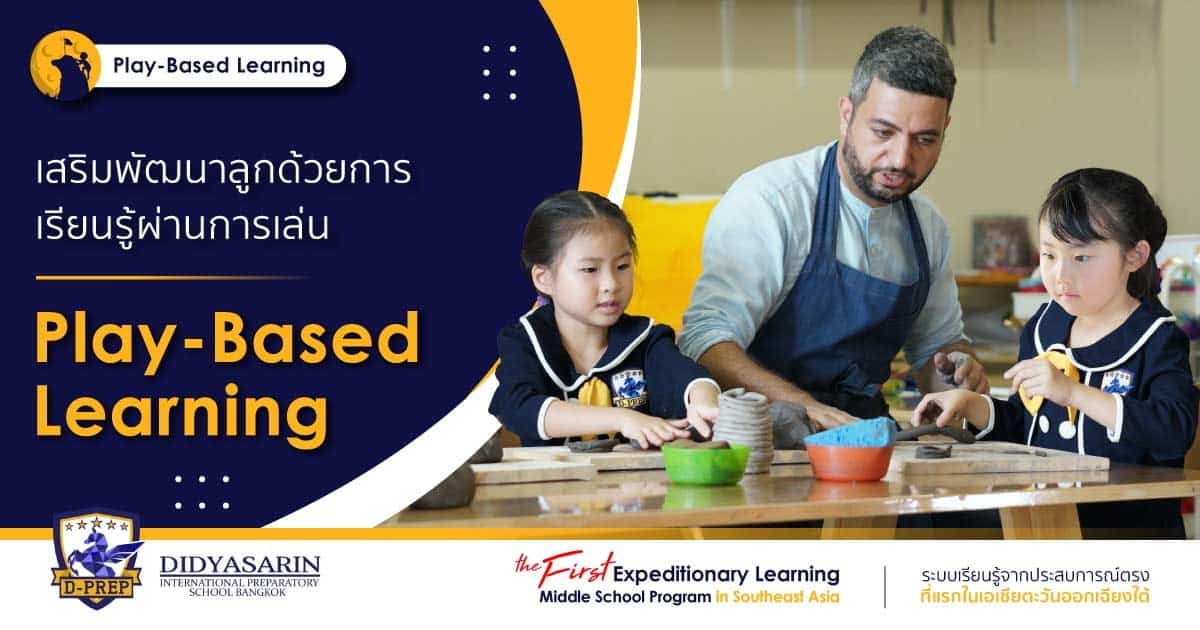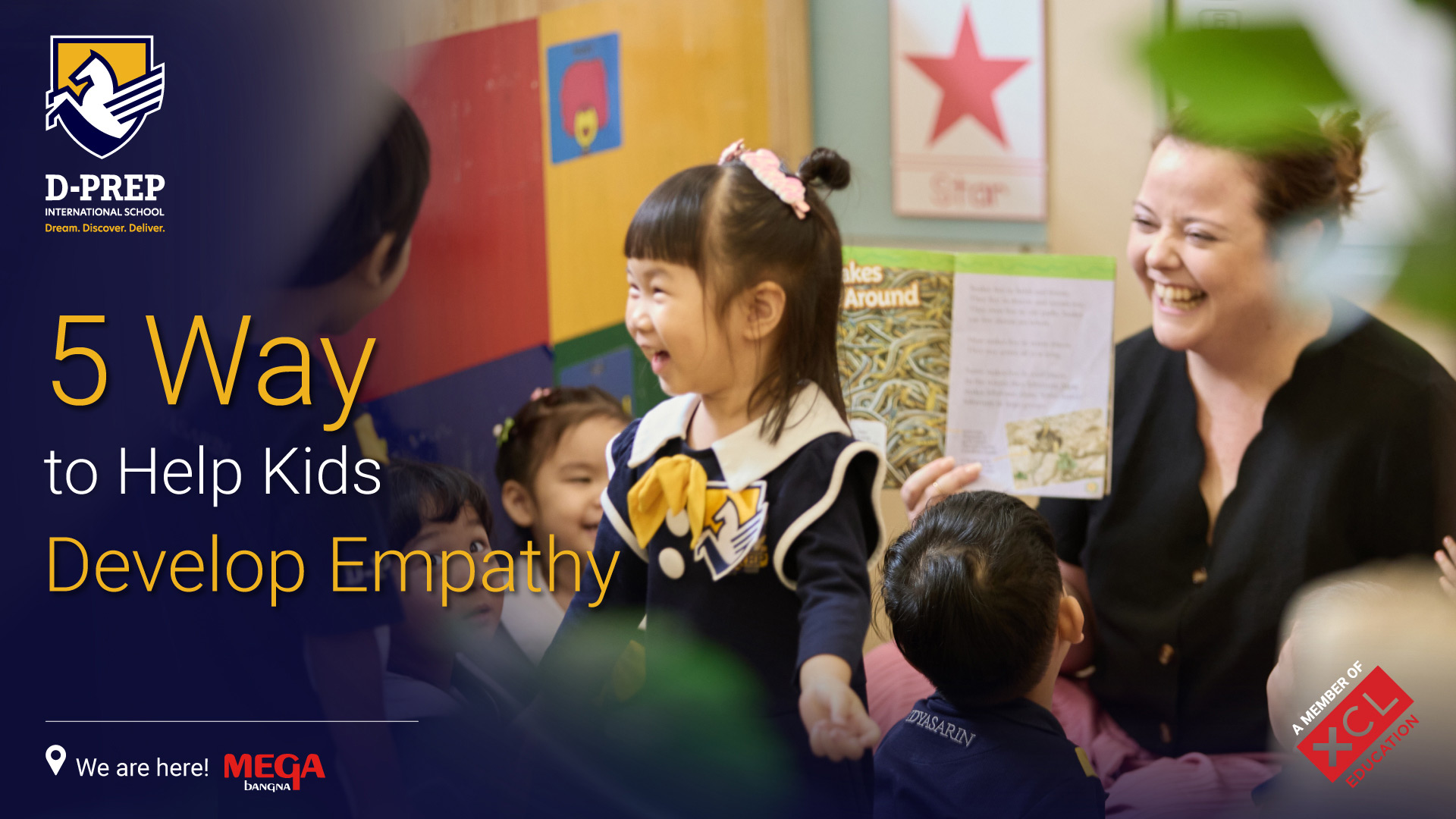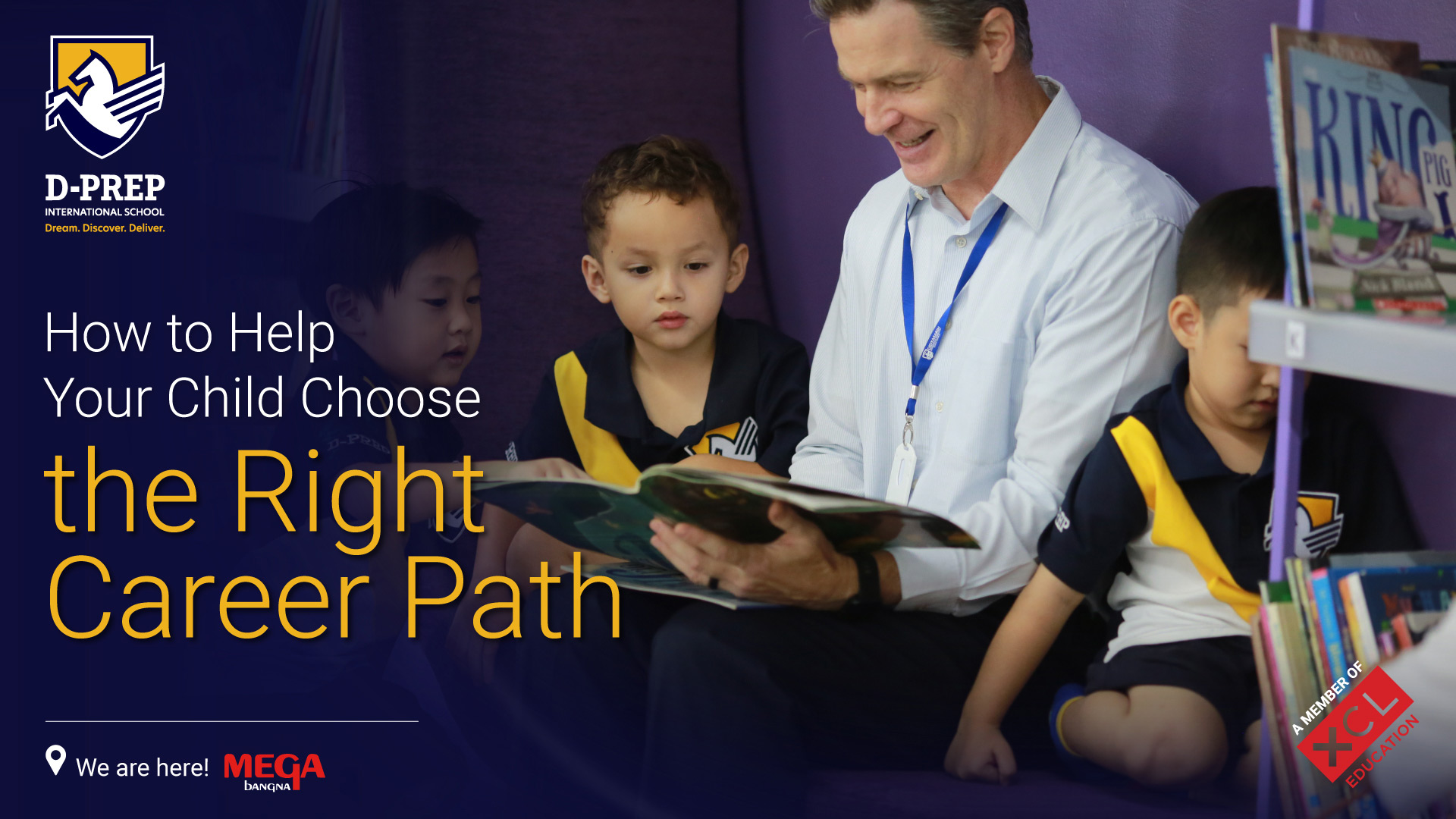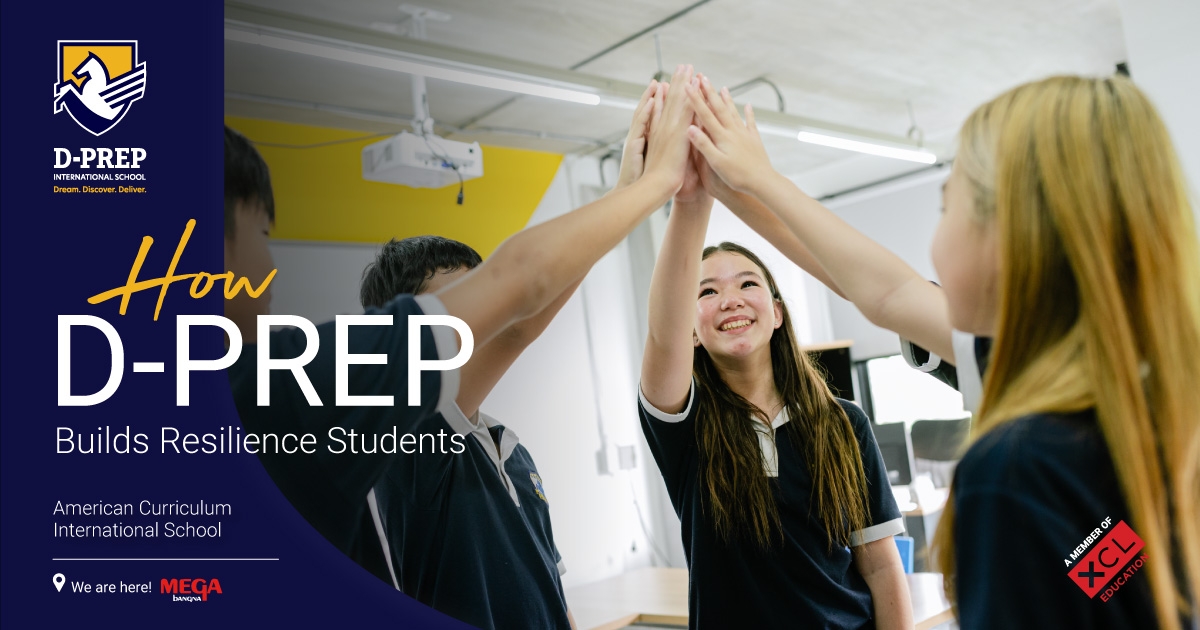“Children’s potential is best realized
when they play and explore things independently.”
Play-Based Learning is a method of education that promotes “learning through play.” It is extensively utilized in classrooms worldwide and is accepted as appropriate for kids whose interest in learning new things can be sparked through play.
Children develop critical life skills like socializing, physical growth, and cognitive development through play-based learning. They will use their imaginations to the utmost extent when playing as they discover creativity, problem-solving, and overcoming obstacles.
Schools that encourage play-based learning in the classroom have a variety of areas and playthings set up so that kids can choose what they want to play in a carefree, enjoyable, and stress-free environment. This way, children can grow up with quality and enjoyment that develops relationships with others, including the outside world and surroundings.

5 skills that children can develop through play-based learning
1. Social and Emotional skills
Learning through play aids in developing social skills with peers through group play. It also encourages turn-taking, sharing, teamwork, dialogue, and problem-solving especially when disputes occur. This ability is crucial for social interaction, especially in young toddlers who are just starting out.
Another essential skill that play-based learning indirectly teaches children is “survival skills.” This is because when children are exposed to new settings where they meet other kids, they learn to interact and play with others. Although simple, this skill greatly contributes to their social skills as they age.
Bullying in schools is a problem that commonly arises in today’s culture. Some kids play too rough, are manipulative, and are overbearing. As our kids learn how to coexist in society and develop their social skills, they can deal with circumstances like these and find solutions.
2. Language Skills
The time spent learning in school is crucial for vocabulary development. Play-based learning encourages spontaneous interaction and communication. Language and literacy development will eventually result from this.
Playing with friends enhances storytelling, debates, role-playing, and sharing objectives. One example is when kids converse while role-playing “house.” Who will carry which duties out? Who will play as the parents? Who will cook? These are just a few examples that teach children language skills.
Aside from independent play, instructors can also encourage language acquisition by fostering class discussion, teaching new vocabulary, asking questions, and motivating students.

3. Creativity and Imagination
Creativity and imagination are abilities that come naturally and develop with time. Children, particularly those who have the chance to play completely, can learn things on their own (self-directedly). They can choose the setting they want to play in and engage in pressure-free creative play.
Children who pretend to be mothers, teachers, veterinarians, or doctors often use the numerous instruments available to them to produce what they want. These things will aid in developing creative thinking, problem-solving abilities, and the ability to convert everyday objects into something that suits one’s imagination.
4. Courage
Play-based learning can help children develop crucial abilities like bravery and a desire to try new things. Children should want to learn without feeling pressure since playing fosters independence and increases the joy of learning.
5. Motor skills
Playing can help strengthen children’s muscles. While climbing, jumping, running, and throwing help develop big motor muscles, coloring, block building houses, and role-playing help develop fine motor skills.
Parents opting for a play-based learning curriculum care about their kids’ education. Here are some prompts you can use to discover what program will be best for their kids:
- Is there a playground at the school both inside and outside the structure?
- Is there spare time built into the class schedule?
- Look around the school to see how big it is. Is there enough space for activities and adequate play equipment for kids, especially in a room with good lighting?
- Does the school value what the students genuinely care about?
- Does the school provide opportunities for both individual and group playtime?

Play-based learning offers a myriad of benefits for children’s cognitive, social, emotional, and physical development. It also enhances children’s communication and collaboration skills, helping them build relationships with others and develop a sense of empathy and cooperation.
Parents, caregivers, and educators must recognize the importance of play in children’s lives and incorporate it into their daily routines to ensure optimal growth and development. By embracing play-based learning, we can create a nurturing and enriching environment that fosters children’s curiosity, imagination, and love of learning.
If you are interested in visiting the school, please contact
Address :
D-PREP International School
38, 38/1-3, 39, Moo 6,
Bangna Trad Rd., Km. 8,
Bang Kaeo, Bang Phli District,
Samut Prakan, Thailand 10540
Email: info@lady
Google Map: https://info.dprep.ac.th/directions
Tel: 02-105-1757, 082-1515922
Website : www.dprep.ac.th
Facebook: DprepSchool
Line: @d-prep
IG : @dprepschool






